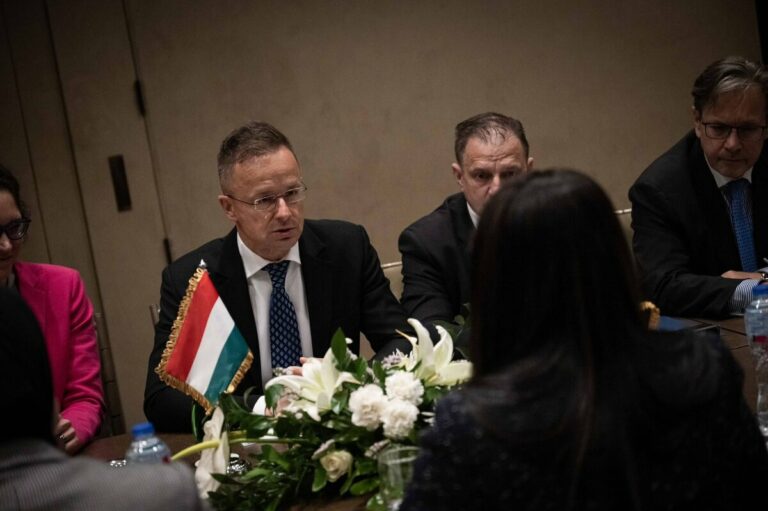visit
PHOTOS: Hungary will become safer, new pipeline to be built

Hungary backs advancing Moldova accession

Hungary today safest place for Jewish communities in Europe, says FM Szijjártó

Astana International Forum 2025: Kazakhstan, the new host of key global talks and cooperation

Informal Turkic Council meeting in Budapest, PM Orbán praises energy cooperation

PM Orbán praised Hungary’s Turkic friends for low energy prices, called Azerbaijan a staunch partner

Speaker Kövér after talks with Uzbek President Mirziyoyev: Hungary does not want to become an empire’s periphery

Bestselling Chinese author to visit Budapest

President Sulyok invites pontiff to Hungary

Half of Budapest to be closed for traffic next Tuesday and Wednesday

First major Turkish tourism workshop held in Budapest – PHOTOS

One of the wealthiest and most powerful Chinese figures is in Budapest; the reason remains a secret – UPDATED: big announcement

PHOTOS, VIDEO: Pope Leo XIV in Hungary

Silk Road reborn: Kazakhstan and Hungary Strengthen Inter-Parliamentary Cooperation

Hungarian government: President Macron’s meddling in the papal election unacceptable

Hungarian companies to participate in Africa’s biggest economic and transport development programme

PM Orbán-close historian, ideologist, House of Terror head says Ukrainians massacred Ukrainians in Bucha

PM Orbán and Slovak Socialist PM Fico discuss friendship, migration, and gas supply





 ZH
ZH IT
IT DE
DE HR
HR NL
NL FR
FR JA
JA RO
RO RU
RU ES
ES TR
TR
